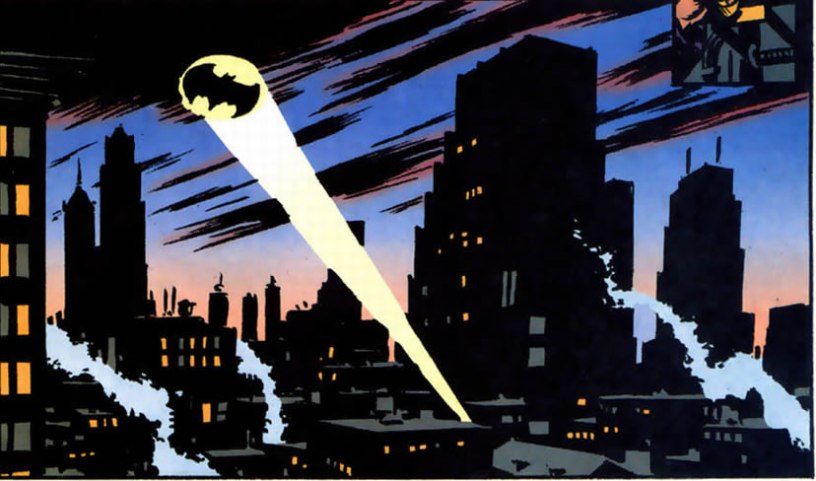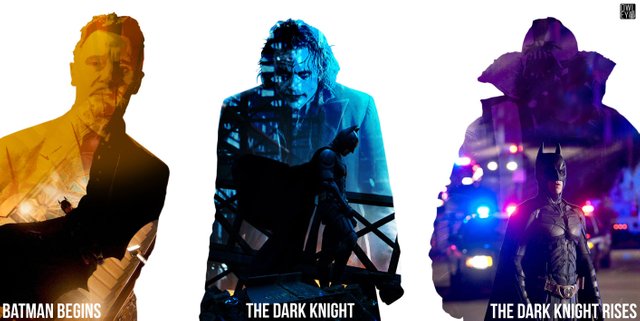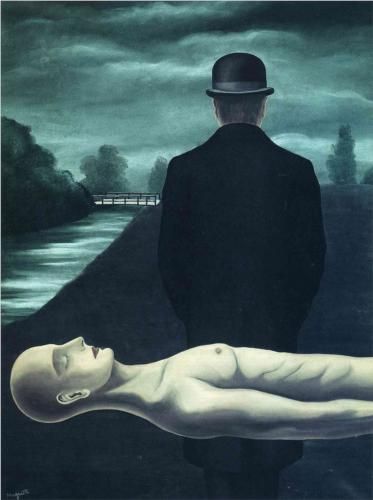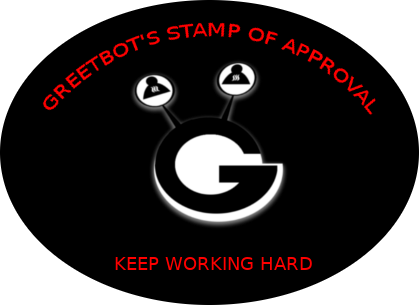Why so serious, Johnson?: 'London' vs The Dark Knight Trilogy

"I'm Gotham's reckoning."
Christopher Nolan. The Dark Knight Rises, 2012.
“THO’ Grief and Fondness in my Breast rebel,
When injur’d THALES bids the Town farewell”
Samuel Johnson. London, 1738.
Samuel Johnson’s imitation of Juvenal’s ‘Third Satire’, ‘London’, was written in 1738 and published anonymously in multiple editions. The poem satirises the measures of the government and the corruption which it was thought to have fostered. This form of Satire was gaining increasing recognition and applaud in the eighteenth century, from audiences as well as writers like Jonathan Swift and Alexander Pope who themselves practiced in the style. Johnson’s voice and narrator-protagonist, Thales is waiting for the boat at the bank of river Thames and meanwhile delivers an oratory to his friend about the state of affairs in London. He seems to be addressing the people of London instead of his friend, as inferred from his apparent motives. Grief and fondness for his city rebels in his heart, yet he must leave the town “to find some happier Place” because of corruption and crime which emotionally and mentally injured him. In this paper, I shall attempt to compare and contrast Johnson’s portrayal of London with Christopher Nolan’s Batman Trilogy.

Nolan’s Gotham City is depicted in murk as criminals rein free and crime flourishes with little hope for justice. Good people face constant danger as evil exploits them. Bruce Wayne’s transformation into Batman in itself was a result of the murder of his innocent and philanthropic parents by people seeking mere riches. Johnson depicts a similar state of affairs in ‘London’ where “Crimes are Safe” but people never are. He advises people to “Prepare for Death” because “Some frolic Drunkard” might “stabs you for a Jest” even inside your own home at any time. Furthermore, he describes an absence of law and justice when he says that the crime would be “unseen” because even the cops are helpless, as they are in Batman Begins. Evil is endemic according to Johnson and thus becomes contagious. To survive in such a city, one must be corrupt or suffer the fate of the Wayne family. The “poison’d Youth” are drawn to crime because of poverty and/or oppression by the rich and powerful sycophants who constantly flatter officials slavishly. The ones who are successful in appeasing the person in power become “Happy Fav’rites” and are appointed as ministers. Here we can draw a comparison with Jonathon Swift’s Gulliver’s Travels where, in Part 1: A Voyage to Lilliput he describes a king who appoints ministers on the basis of their skills in the circus (or the ones who appease him) instead of on the basis of merit. These “Happy Fav’rites” are the corrupt “Parasites” who “Lye without a Blush”. The irony is that these very men define a true Briton as virtuous, masculine, superior, and perfect in every sense. Johnson tugs at their grip and relocates this Briton in the countryside which is the only place where virtue can now exist, thus creating two polarities: the morally decadent city and the morally upright pastoral. However, his ideas of the country are unlike the typical understanding of pastoral spaces along with Juvenal’s description of the pastoral.
Johnson is unabashedly attacking Robert Walpole, the first de facto Prime Minister of Britain appointed in 1721 during King George I’s reign. The king is referred to by Johnson as one who indulges in the same act of flattery to appease Walpole and live comfortably. He criticizes the French influence and Walpole’s stance on the Spanish War, displaying xenophobia. He also blames immigrants from Paris and Rome for the growing crime and corruption and rebukes the overpopulation of the city where “falling Houses thunder on your Head”. This draws a sharp contrast with his reference to Queen Elizabeth’s golden reign; he wishes to “call BRITANNIA’S Glories back to view” and seems quite rightist in his outlook. However, he also seems to be portraying a very gloomy and hopeless situation at least in the first part of the poem. The Batman always believes in the spirit of Gotham and those few individuals who are still virtuous. Meanwhile, the antagonists in The Dark Knight Trilogy seem to have lost complete faith in the goodness of Gotham. In Batman Begins Ra’s al-Ghul wants to destroy the city in order to save it. He wishes to restore peace by establishing a new society because he deems the present one to be irredeemable. This is resonant of the Biblical tale of Sodom and Gomorrah as narrated in the Book of Genesis which had to be destroyed for peace and virtue to prevail once again. In The Dark Knight Rises, his daughter Talia al-Ghul follows in his footsteps and once again attempts to establish justice in Gotham by annihilating it.
Johnson posits London as Nolan presents Gotham. People are prone to malice, rapine, and accidents as “Ruffians” roam the streets and even the law enforcers are corrupt. These qualities lead to the “Wrath of Heav’n” as Sodom and Gomorrah suffered. However, even god’s wrath is welcomed by Orgilio (or Walpole) in the poem when his palace catches fire. This is so because of all his followers who saw this as an opportunity to prove their loyalties by contributing for his palace to be rebuilt which only led to an increase in his wealth. Johnson mocks Walpole by calling him the “Guard of Commerce” (as he controlled the State at the collapse of the South Sea Company) and criticizes the prevalent tax policies which were enforced on the poverty-stricken and the downtrodden. Johnson himself belonged to a humble background which explains his hatred for a system wherein he is unable to progress.
The gap between the rich and the poor is something ‘London’ holds in common with The Dark Knight Rises. As pointed out by Slavoj Zizek in The politics of Batman, early in the film, Selina whispers to Wayne as they are dancing at an exclusive, upper-class gala: “A storm is coming, Mr. Wayne. You and your friends better batten down the hatches. Because when it hits, you’re all going to wonder how you thought you could live so large and leave so little for the rest of us.” Nolan, like any good liberal, is “worried” about the disparity and has said that this worry permeates the film: “The notion of economic fairness creeps into the film… I don’t feel there’s a left or right perspective in the film. What is there is just an honest assessment or honest exploration of the world we live in – things that worry us.” Zizek further remarks that another Dickensian dichotomy of the good capitalist (philanthropic Wayne) and the bad capitalist (greedy Stryver) is established. All these facets culminate into a violent revolution with the support of Bane who establishes a proletarian dictatorship in a way. He takes power from the ruling class minority and unleashes in onto the proletariat majority. He frees the criminals and lets chaos prevail. Even Selina is unhappy with the havoc and destruction that undertakes upon such a revolution where “revolutionaries are possessed fanatics” (as stated by Jonathan Nolan). Johnson’s motive behind ‘London’ is to provoke thought and awaken the people of not only London but England. He urges people to join his cause and participate in a revolution. He seems to be driven by militant instincts in his stark criticism for Spain and corruption in general.
When power is concentrated, there comes a point when they decide to take control and thus revolt. Johnson also seems to be suggesting that a revolution is on the horizon and has declared himself the leader. Johnson asks his audience to neglect reason and follow their passion for freedom and equality. He focuses on the present without any regard for the future. He wishes people would just take action without being afraid of the consequences. Bane frees his subjects of such fears by isolating Gotham City. Johnson accounts for the uncontrollable increase in crime and poverty by stating that there aren’t enough ropes to hang the criminals. He draws our attention towards the extent of dreariness in London and the reasons for the same. Although he advocates a revolution, from the example of The Dark Knight Rises, that too would not automatically establish justice. In the film, a madman is made judge, and is seen condemning the rich and powerful for their exploitation of the poor. While power seems to be in the hands of the public, it is actually Bane who controls the crowd which is made evident when he is able to save Miranda or Talia al-Ghul.
Talia al-Ghul disguises herself as a philanthropist like Wayne but turns out to be the mastermind. She firmly believes in her cause while Bane’s actions seem to be influenced by his affection for her. It is important to note that he is driven by love for Talia while the Batman is driven by love for his people and his guise of the batman. The most interesting driving force is that of the Joker in the Dark Knight. He is passionate, driven by his fervent belief in evil. He believes in the innate evil of every person. He is looking for nothing while taking lives, rather simply proving a point: that nothing matters because everyone is innately evil. He likes to watch the world burn, as suggested by Alfred in the movie. He is able to turn the white knight Harvey Dent into a criminal, half-mad like himself. Harvey Dent and Batman turn into a binary. In the beginning of The Dark Knight, Dent pronounces himself as Batman to save Batman; it is poetic justice when Batman at the end, takes the blame for Dent’s crimes to maintain peace and faith. Batman thus becomes the dark knight because he is unable to lead the people. His sacrifice is equated to that of Christ’s as mentioned by Zizek because he too sacrifices himself for his people. He emerges as a vanguard in Batman Begins, who does what the police is unable to do. Yet, he is a threat because he is proof that the State is incapable of controlling the city. In the subsequent movies, his character develops into a vigilante, only appreciated by a select few. However, he does not betray his morality, leaving the Joker alive at the end of The Dark Knight.

Magritte. The Musings of a Solitary Walker, 1926.
Thales seems to desire to emerge as a Vigilante too. He disregards the law because it only upholds the rights of the ruling class. The moral decadence described in his poem is a serious accusation on the government because he clearly states that they have led their people to such a state. This moral decadence was the reason he wishes to leave the city and live in the city, reminiscent of The Tale of Two Cities. He describes the country as a place free of inhibitions and crime, though it was not so. His idealistic description of the country is too good for the readers to be convinced of it. He proposes the life of a vegetarian and habits such as gardening. The instinct to flee the state of affairs is seen in all three films of the trilogy. In the first film the people are struck with chaos and havoc, when they lose their sense of consciousness and attempt to run. In the second film, the brilliant antagonist, the Joker, predicts such an event and uses the flight instinct to prove to the Batman that all people are innately evil. However, Nolan leaves space for hope and good when the people choose to die in the water, mid-flight, than to live at the cost of others’ lives. Yet the Joker does not give up hope himself and continues to believe in evil till the end. In the third film, people are led by the police towards an escape only to be stopped by members of that very police force. Meanwhile, the rest of the country refuses to provide aid to Gotham City which was also the state of London. This police officer manifests into Robin who inherits the Bat-cave. Thus, Batman symbolically passes on the torch to him as Thales does to his friend until the time he returns to lead the revolution and also sharpen his friend’s poetry.
Resteemed by @resteembot! Good Luck!
The resteem was payed by @greetbot
Curious?
The @resteembot's introduction post
Get more from @resteembot with the #resteembotsentme initiative
Check out the great posts I already resteemed.
Hi. I am @greetbot - a bot that uses AI to look for newbies who write good content.

I found your post and decided to help you get noticed.
I will pay a resteeming service to resteem your post,
and I'll give you my stamp of automatic approval!